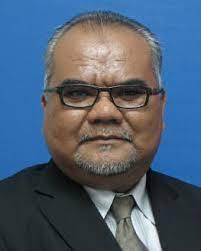THE recent Malaysian Institute of Accountants (MIA) 28th Annual General Meeting (AGM) on Sept 27 saw signs of agitation among its members.
Of the eight motions proposed at the AGM, two issues stood out and were discussed at length. The first was on the need to structure MIA separately, namely, its regulatory and professional roles.
It was argued this would increase fairness and independence (perceived or otherwise), since regulatory roles were likely to be in conflict with professional roles. The motion was approved and would require amending the Accountant Act 1967.
The second issue was on MIA’s membership entry qualification. Even before the motions were discussed, questions were raised when the AGM was about to vote on the acceptance of one private university as an addition to the list in the First Schedule of the act.
This private university had gone through a lengthy assessment process by the institute. A member questioned the rationale for allowing this, since the number of accountants would increase rapidly with the establishment of new private universities. He wanted the practice to be stopped.
The debate that followed did not really address the issue of the perceived oversupply of accountants, but drifted to other matters, such as the quality of local students and why there were more members from Universiti Teknologi Mara (UiTM) compared with other institutions.
There were 219 new members admitted from UiTM, and this is to be expected since it is the largest local university.
Ironically, the largest admission of new members came from the Association of Chartered Certified Accountants (ACCA) England, with 322 new members.
For the financial year 2013/2014, MIA admitted 1,285 new members, with local graduates exceeding professional members by only nine per cent.
Nevertheless, the numbers are insufficient to meet the demand for accountants. As announced recently by Minister in the Prime Minister’s Department Datuk Seri Abdul Wahid Omar, Malaysia needed 60,000 accountants by 2020.
The number of MIA members currently is 30,000, with 19,000 of them being chartered accountants. At the current rate of new membership, MIA is unlikely to achieve the target, unless something radical is put into action.
This problem could be further aggravated when local accountants are lured to work overseas for greener pastures. A 2012 survey by ACCA of 2,000 accountants in Malaysia, Singapore and Thailand found that 82 per cent of respondents expressed deep interest in overseas secondment.
Interestingly, the shortage of accountants was not used as an answer to dismiss misplaced concerns by the members.
Instead, members were asked, via a show of hands, whether local graduates should also take qualifying examinations (QEs) before becoming MIA members, on the pretext of using them as feedback for the Committee to Strengthen the Accountancy Profession (CSAP).
CSAP was established by the Finance Ministry, following the World Bank recommendation on the Malaysian accounting profession through its Report on the Observance of Standards and Codes (ROSC) in February 2012.
When asked whether members of foreign professional bodies should also be required to take QEs, the majority of members agreed overwhelmingly. Again, the rationale given was the oversupply of accountants.
The fact that both local graduates and members of foreign professional bodies are proposed to be subjected to QEs signals mixed reactions from MIA members, and does not reflect the reality, namely, the dearth of accountants in Malaysia.
It remains to be seen whether the AGM motion calling for members of foreign bodies to take the MIA QE (which is consistent with ROSC) would materialise as intended, given the strong influence of foreign professional bodies in the MIA council.
In fact, the issue of the quality of local graduates has lately been blown out of proportion by some quarters with vested interest in foreign professional bodies.
The accounting curriculum in local universities is subjected to various quality control. Other than the standards set by the Malaysia Qualification Agency, local accounting education must also meet the standards set by the Halatuju Report (Reassessment Report on Accounting Programmes at Public Universities in Malaysia), led by both the Education Ministry and MIA.
The Halatuju Report also takes into account educational requirements set by the International Federation of Accountants, the umbrella body for all accounting professional bodies in the world.
ROSC clearly shows that local Bachelor in Accounting degrees produced by local universities, as listed in Table 1 of the Accountant Act 1967, are of acceptable quality. The report only suggests improvements in terms of monitoring and the enforcement of adopted quality standards.
Therefore, the introduction of additional layers of examinations for local graduates (as suggested by the outdated MIA Education Blueprint or other quarters) would, in my opinion, reduce local students’ intake significantly in the future. As commented by many scholars, examination is the perfect barrier to entry.
Given the shortage of local accountants, this would hamper the government’s Vision 2020.
Published in the New Straits Times, November 25, 2014





